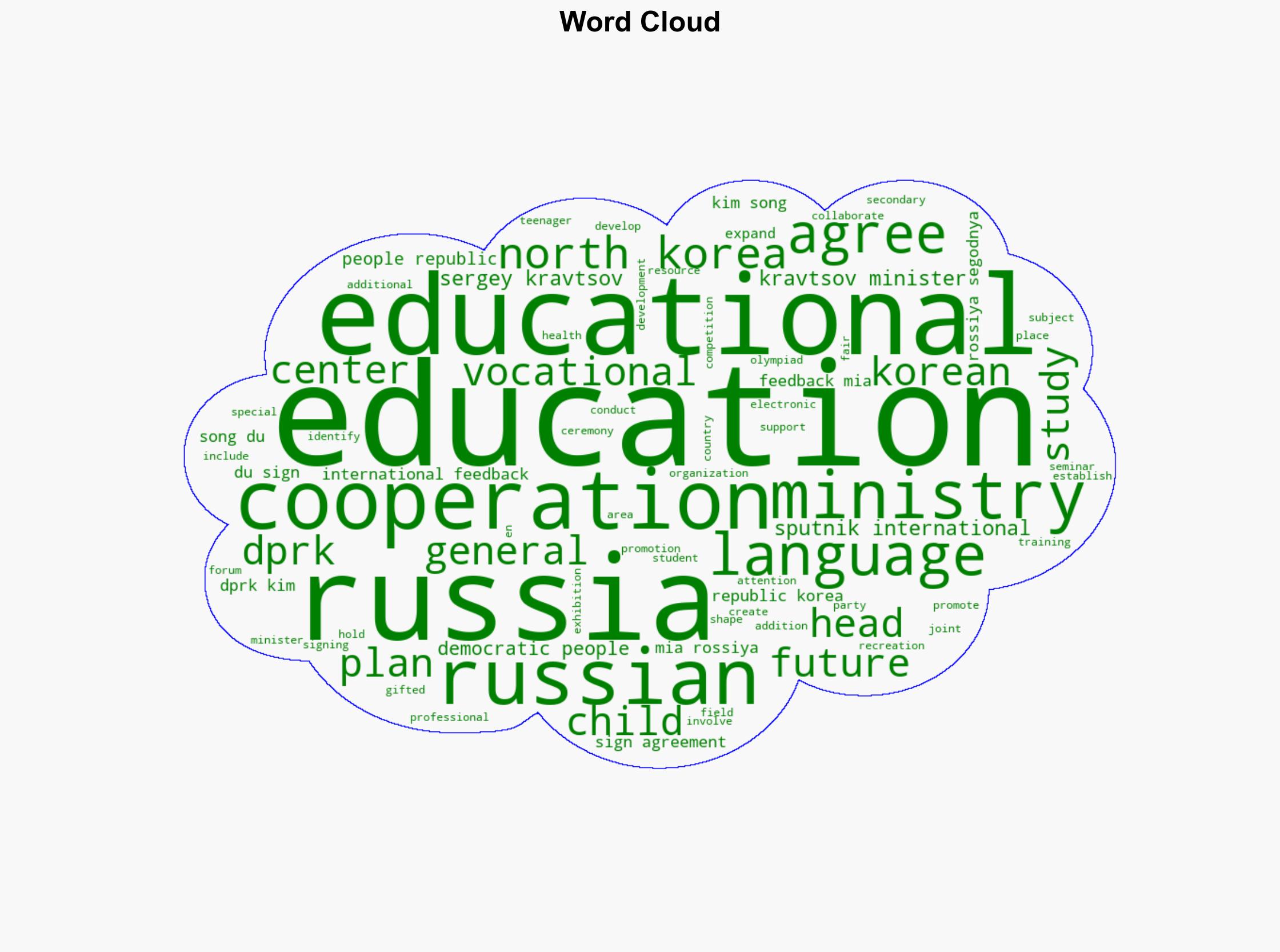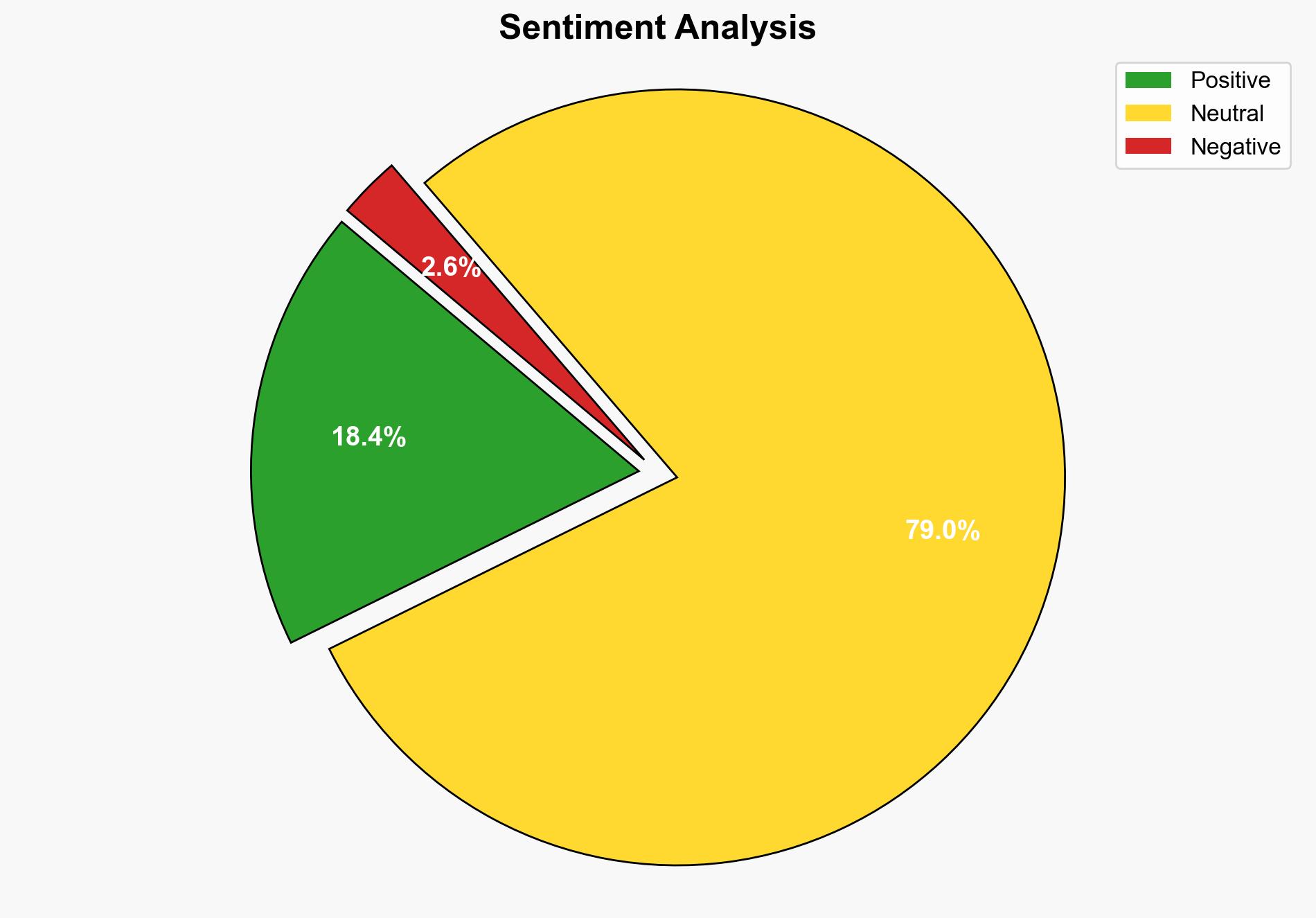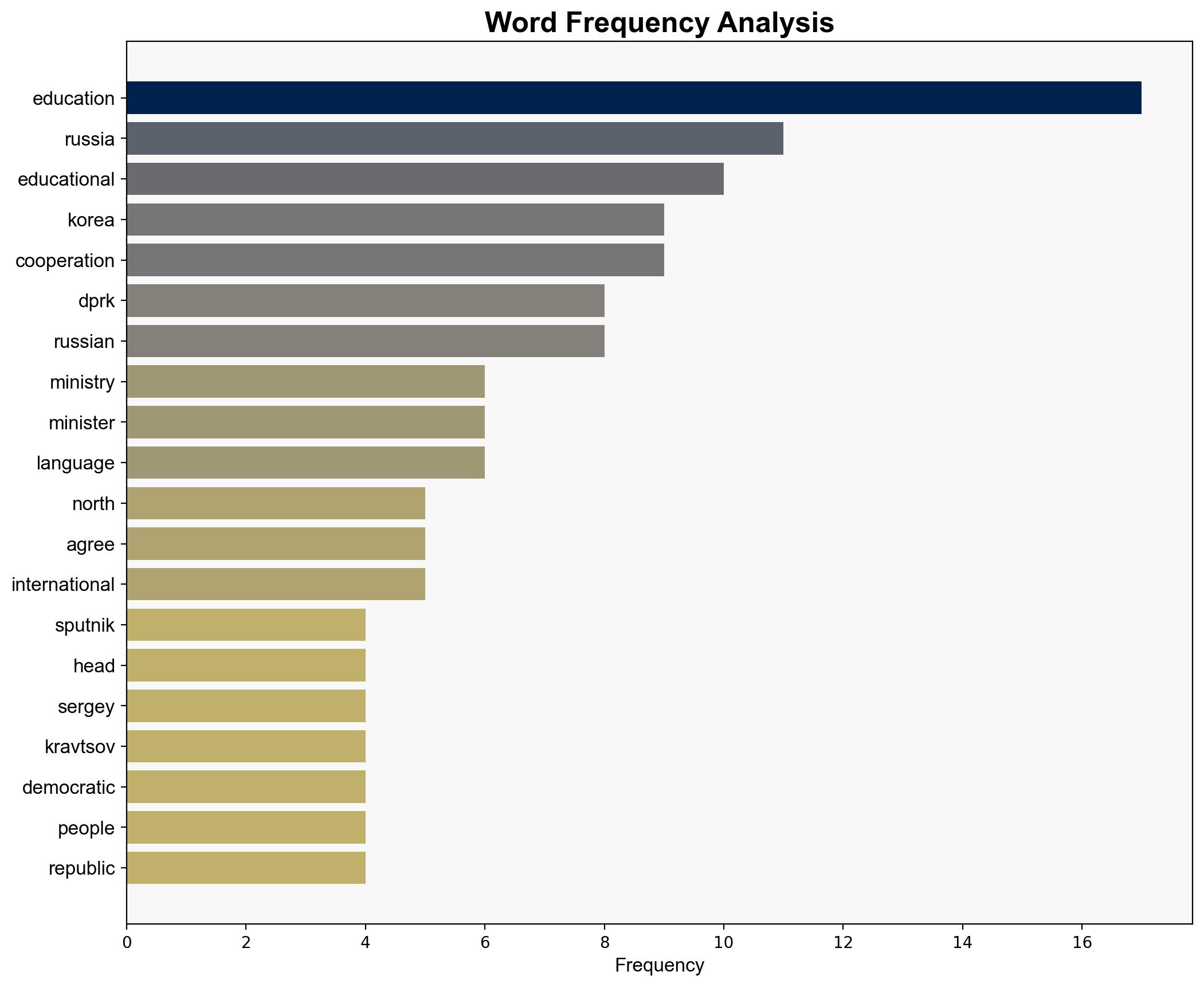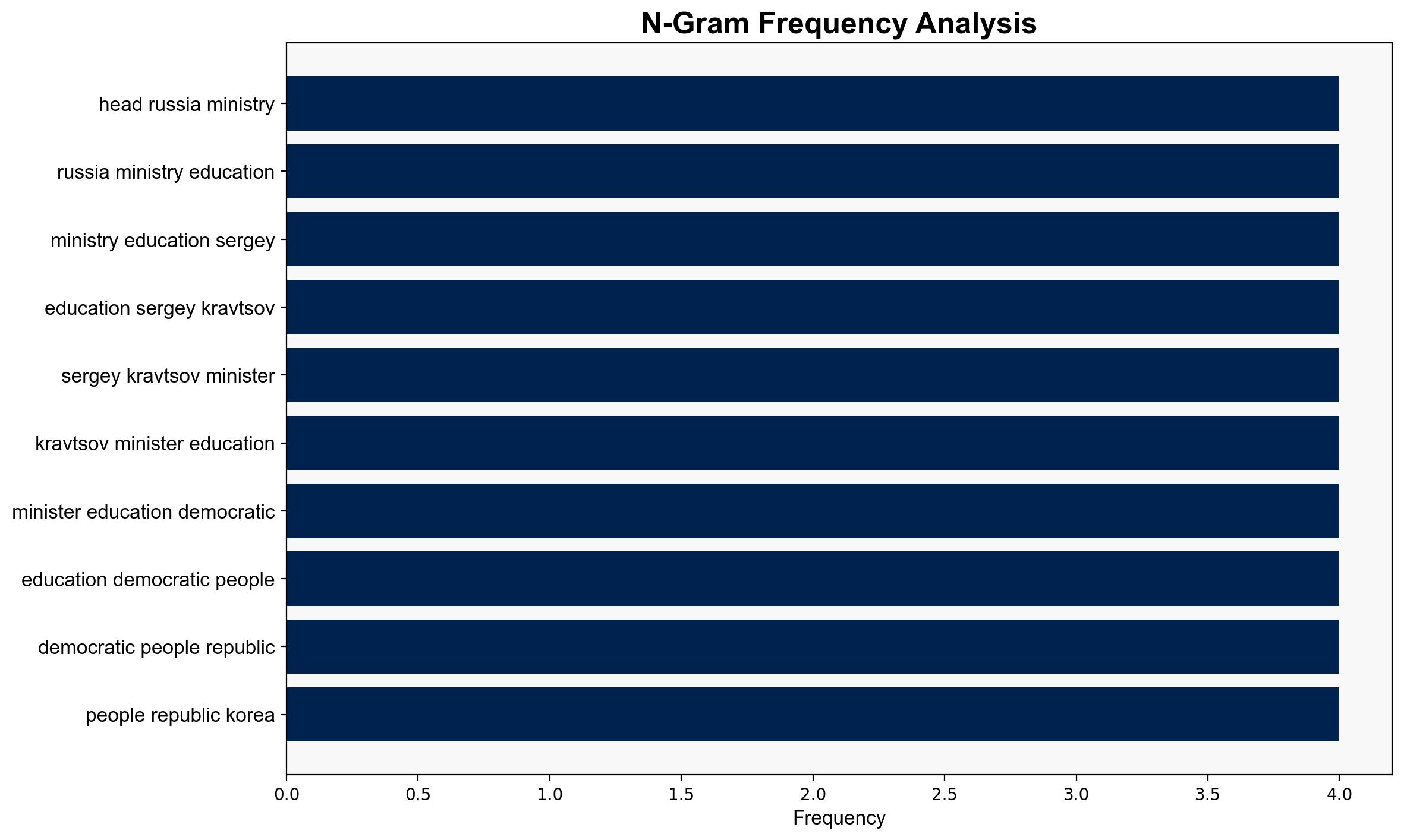Russia and North Korea Agree to Expand Cooperation in Education – Sputnikglobe.com
Published on: 2025-06-15
Intelligence Report: Russia and North Korea Agree to Expand Cooperation in Education – Sputnikglobe.com
1. BLUF (Bottom Line Up Front)
Russia and North Korea have formalized an agreement to enhance cooperation in education, focusing on general, secondary, vocational, and professional education. This strategic partnership aims to foster cultural and linguistic exchange, with plans to establish educational centers in both countries. Key recommendations include monitoring the geopolitical implications of this alliance and assessing potential shifts in regional influence.
2. Detailed Analysis
The following structured analytic techniques have been applied to ensure methodological consistency:
Causal Layered Analysis (CLA)
At the surface level, the agreement is a bilateral educational initiative. Systemically, it reflects a deepening of ties between Russia and North Korea, potentially impacting regional dynamics. The worldview suggests a strategic alignment against Western influence, while the underlying myth is one of mutual resilience and self-reliance.
Cross-Impact Simulation
The agreement may influence neighboring countries by altering educational and cultural landscapes, potentially affecting regional alliances and economic dependencies. The ripple effect could extend to shifts in language proficiency and cultural understanding, impacting diplomatic and economic interactions.
Scenario Generation
– Best Case: Enhanced educational cooperation leads to improved diplomatic relations and regional stability.
– Worst Case: The alliance exacerbates tensions with Western countries, leading to increased isolation.
– Most Likely: Incremental improvements in bilateral relations with limited immediate regional impact.
3. Implications and Strategic Risks
The agreement could signify a strategic pivot towards closer Russia-North Korea ties, potentially challenging Western influence in the region. Risks include the possibility of increased cyber collaboration, which may heighten cybersecurity threats. Additionally, the cultural exchange might strengthen ideological alignment, impacting regional political dynamics.
4. Recommendations and Outlook
- Monitor developments in Russia-North Korea relations for shifts in regional power dynamics.
- Assess potential cybersecurity threats arising from increased collaboration.
- Engage in diplomatic dialogues to mitigate potential geopolitical tensions.
- Scenario-based projections suggest maintaining vigilance over educational and cultural exchanges to anticipate shifts in influence.
5. Key Individuals and Entities
– Sergey Kravtsov
– Kim Song Du
6. Thematic Tags
national security threats, cybersecurity, regional focus, educational cooperation





